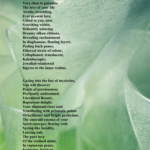The Making of the Harry Potter Films
Not Your Usual Family Day Out!
It was a very uplifting experience to visit the Harry Potter studio tour at Warner Bros, Leavesden in Hertfordshire this summer. Opened in 2012, it is a pleasing demonstration of the talent and creativity present here in the UK, and a boost for British business and our very vibrant film industry. Who would have thought fifteen years ago, that J.K. Rowling’s initial volume of ‘Harry Potter and the Philosopher’s Stone’ would blossom into such a fertile and multi-faceted business!
We were impressed by the sheer volume of props, models, costumes and sets on show, so I’ve included a few photographs here, and there is a fuller report and more images on the ‘Your Ultimate Resource’ website here. A great way to spend an afternoon, or even longer, and an opportunity to see the Gryffindor Common Room, the intriguing Potions Classroom, and the Ministry of Magic’s stunning Atrium, to name but a few of the sights to be savoured.









